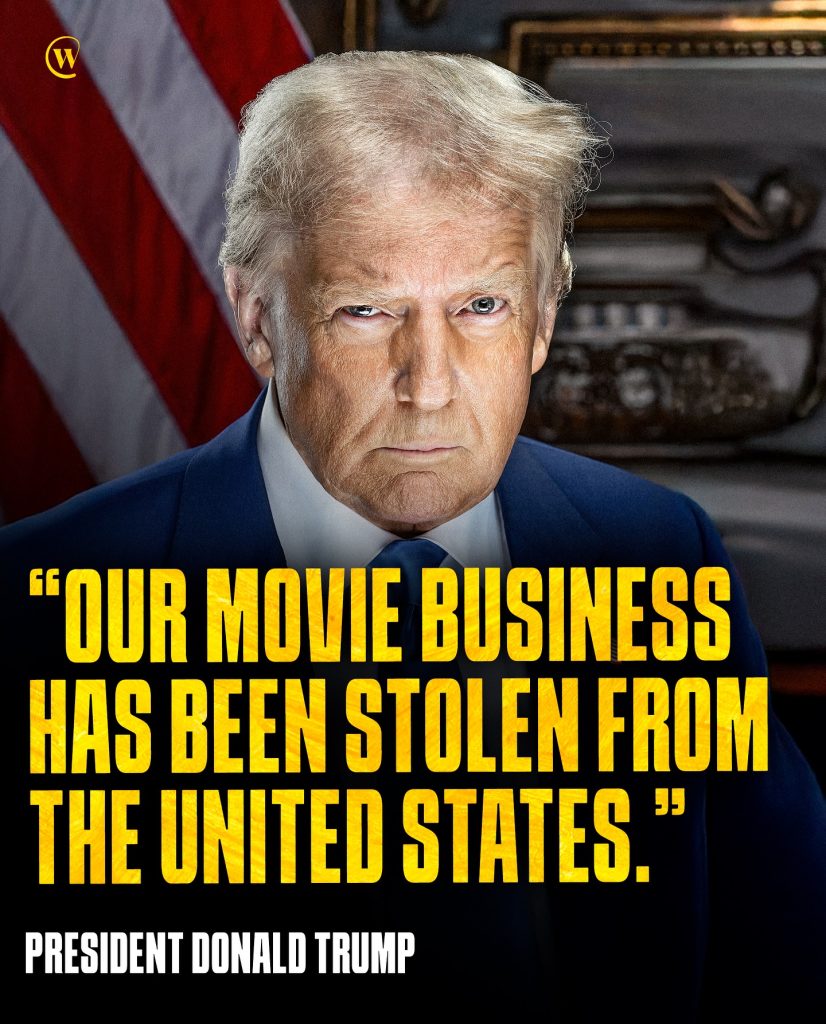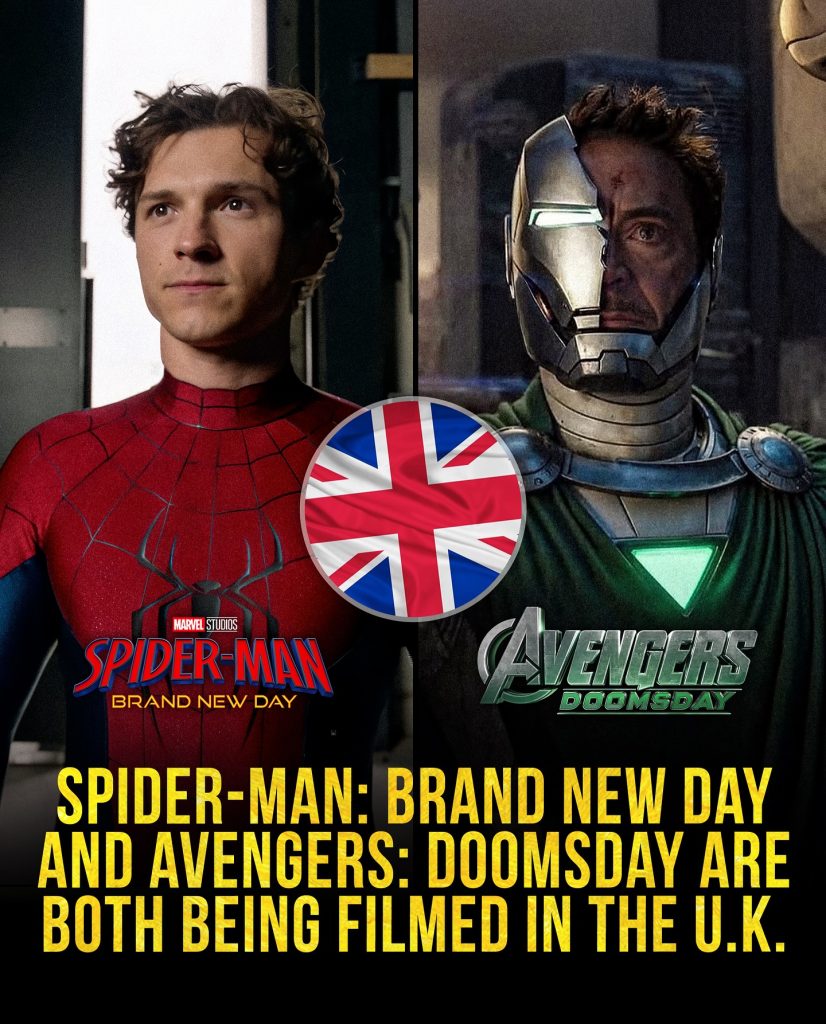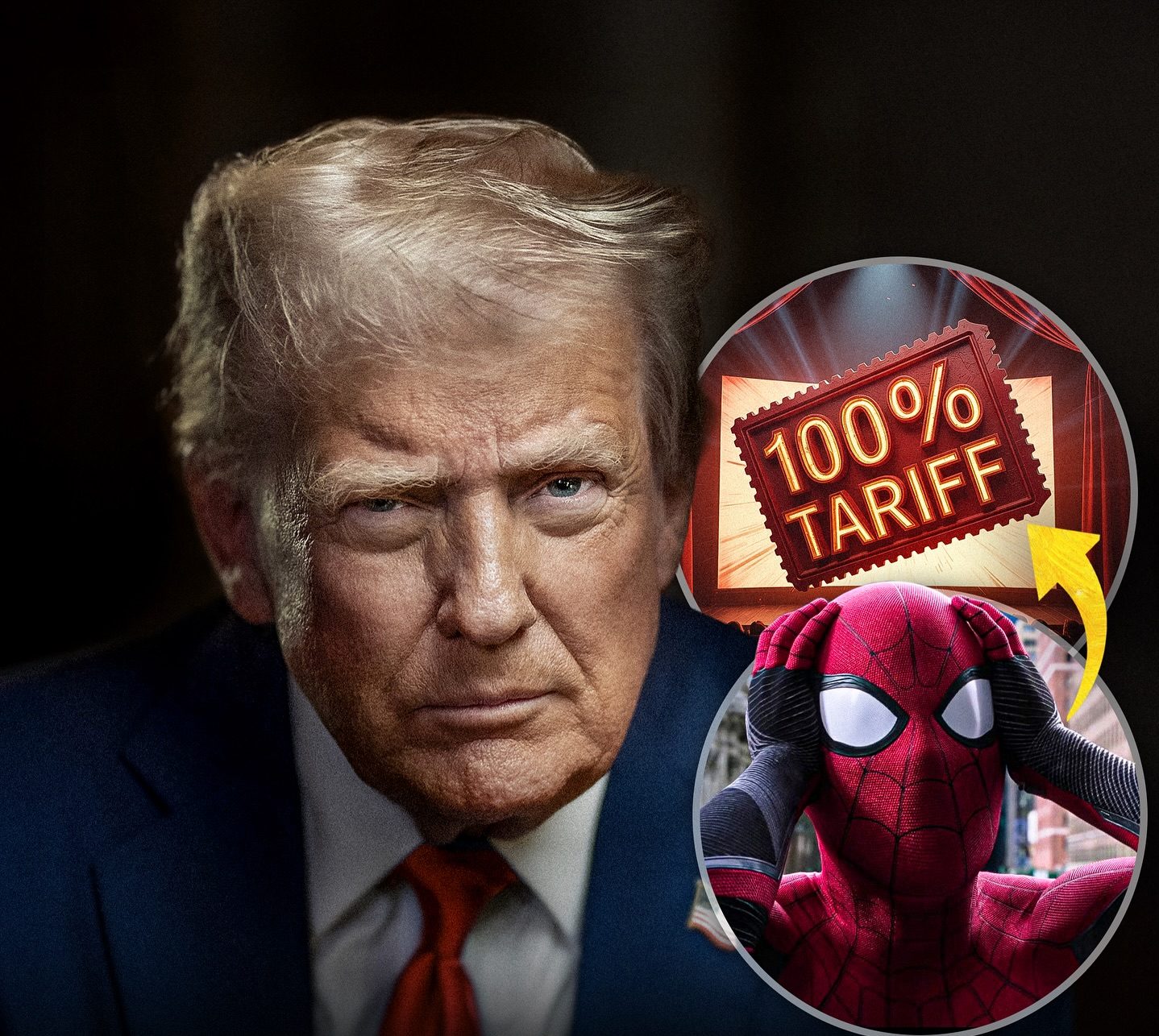Donald Trump Vows to Hit Hollywood With 100% Tariff on Any Film Produced Abroad, Targeting Marvel Shoots in the U.K.
Donald Trump is once again making headlines, this time not for politics directly, but for his fiery take on Hollywood. The former president has said that any movie made outside of the United States should face a 100% tariff if it wants to enter American theaters. His comments came after Marvel Studios announced that two of its most anticipated projects, Spider-Man: Brand New Day and Avengers: Doomsday, are currently being filmed in the United Kingdom. Trump’s words quickly stirred up debate, raising questions about the future of the movie business and how such a policy, if ever enacted, would reshape the industry.
In his remarks, Trump argued that the American movie industry has been “stolen” by foreign countries that offer generous tax breaks and production incentives. For years, Hollywood blockbusters have been filmed in places like Canada, Australia, and the U.K., where studios can save millions in costs thanks to government subsidies and favorable exchange rates. To Trump, this trend represents more than just cost-cutting—it’s a loss of jobs and creative power that should be kept within the United States. His solution is straightforward but drastic: impose tariffs so steep that studios have no choice but to bring their productions back home.

The idea immediately sparked strong reactions. Supporters of Trump’s stance praised him for calling out what they see as outsourcing in the entertainment industry. They argue that if American taxpayers are paying to see movies, the jobs and investments should stay in the U.S., not be shipped overseas. The image of Spider-Man swinging through London instead of New York, or Avengers assembling in a soundstage thousands of miles away, strikes many as a sign that something important has been lost.
On the other hand, critics quickly pointed out the challenges such a tariff would create. Hollywood is a global business, and movies are financed, filmed, and distributed across multiple countries. International box office revenue is now larger than domestic revenue, which means American studios rely heavily on global audiences. Imposing a 100% tariff would not just punish studios; it could also alienate foreign partners and spark retaliation. If other countries responded with their own tariffs, American films could become more expensive abroad, shrinking profits and limiting creativity.
Industry insiders note that Trump’s proposal is still just that—a proposal, not an official policy. It would require significant political support and legal groundwork to ever become reality. Yet, the fact that he is putting it on the table highlights a growing frustration with globalization in industries beyond manufacturing or technology. For decades, the entertainment world has been one of America’s most powerful exports, but the economics of filmmaking have changed, and Trump’s comments tap into nostalgia for a time when Hollywood movies were made in Hollywood.

For Marvel fans, the timing of this debate feels especially relevant. With two massive blockbusters in production overseas, the idea of tariffs could directly affect franchises that have defined the last generation of cinema. Would Marvel be forced to bring Spider-Man back to New York soundstages instead of building elaborate sets abroad? Would the Avengers assemble in Atlanta rather than London? The possibility alone is enough to get fans and studio executives alike speculating about what the future could look like.
What’s clear is that Trump has once again shifted the conversation into new territory. Love him or hate him, his words carry weight and spark discussion. Whether this tariff idea is a realistic policy or just a rhetorical jab, it has already reignited a debate about how much of America’s culture should be protected from global outsourcing. Hollywood may continue filming wherever it finds the best deal, but Trump’s comments have reminded everyone that the issue is far from simple. For now, the movie business rolls on, cameras keep running overseas, and audiences wait to see if politics will one day rewrite the script.

